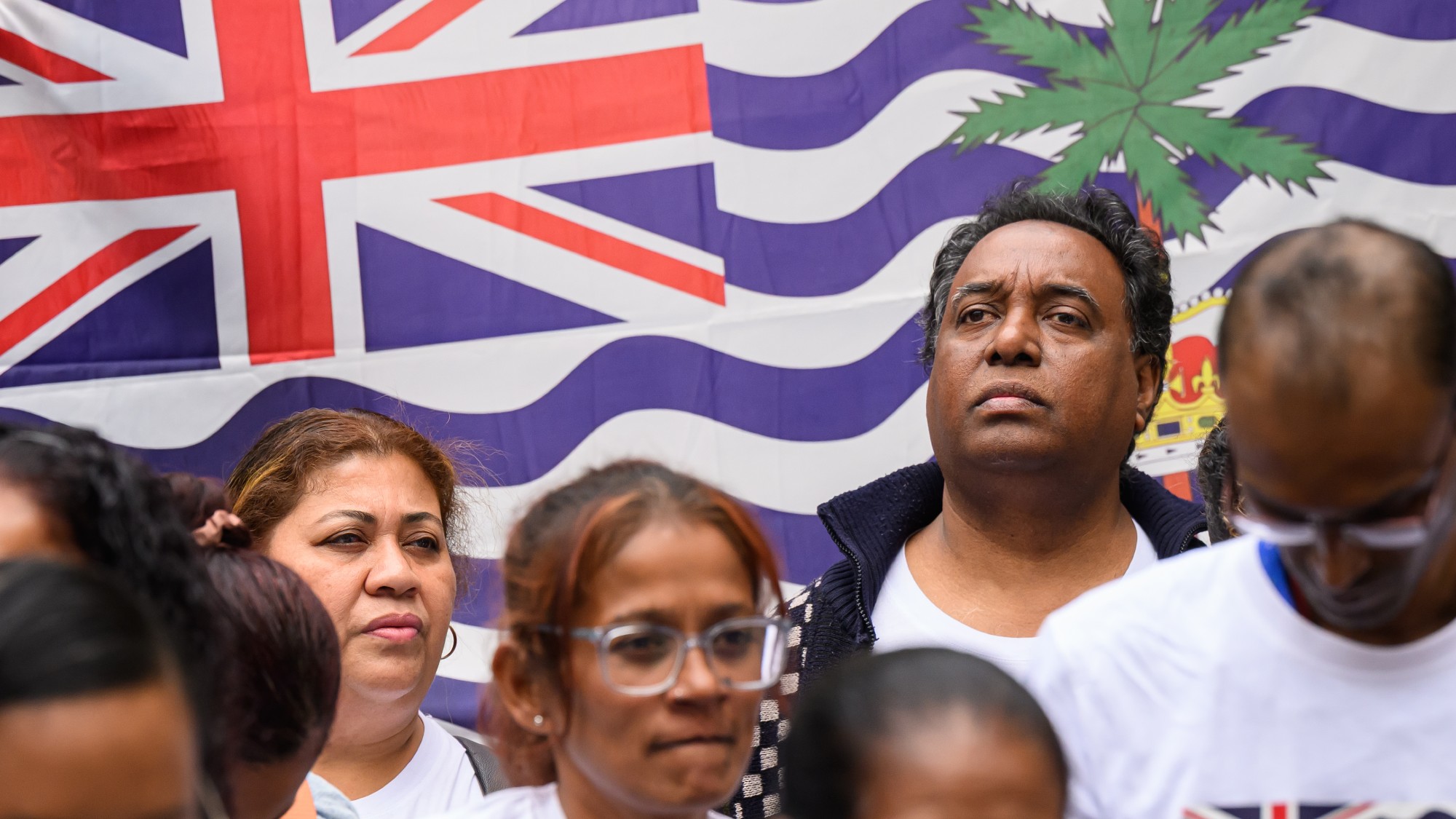The Chagos Islands: Starmer's 'lousy deal'
The PM's adherence to 'legalism' has given Mauritius a 'gift from British taxpayers'

A free daily email with the biggest news stories of the day – and the best features from TheWeek.com
You are now subscribed
Your newsletter sign-up was successful
"Keir Starmer has secured his legacy," said The Daily Telegraph: his "shameful surrender of the Chagos Islands will go down as this nation's foreign policy nadir".
Last week, the PM signed a long-dreaded treaty that officially hands control of the Indian Ocean archipelago to Mauritius – effectively ceding a strategically vital territory that sits in an area of interest for China. To add insult to injury, once the treaty is ratified by MPs, we will pay Mauritius £101 million a year for the next 99 years to rent back a key UK-US military base on the largest island, Diego Garcia.
"This lousy deal essentially amounts to a massive gift from British taxpayers to the Mauritian government," said Andrew Tettenborn in The Spectator. So why sign it? The answer, I'm afraid, "is legalism": the UN's top court had issued a non-binding ruling calling on the UK to give up control of Chagos – and the PM, ever the lawyer, eagerly bowed to international law. Perhaps he was hoping to set a "shining example" to other countries; instead, they will "regard us with contempt for being a pushover".
The Week
Escape your echo chamber. Get the facts behind the news, plus analysis from multiple perspectives.

Sign up for The Week's Free Newsletters
From our morning news briefing to a weekly Good News Newsletter, get the best of The Week delivered directly to your inbox.
From our morning news briefing to a weekly Good News Newsletter, get the best of The Week delivered directly to your inbox.
The deal looks "odd" on the face of it, said James Landale on BBC News. But there were plenty of "practical" reasons to sign the treaty. Multiple UN bodies have ruled that the islands belong to Mauritius; had the UK continued to ignore those rulings, the operation of the base could have become "unworkable". Diego Garcia's satellite communications would have been threatened because the UK relies on a UN agency in Geneva to maintain access to a particular electromagnetic spectrum; aircraft might not be able to fly in or out, for fear of breaching international law.
As for national security, said Sean O'Grady in The Independent, without this deal, Mauritius could have lawfully granted China permission to establish a military base on another of the islands, sparking a serious crisis. The deal specifically forbids it.
This is all true in theory, said John Rentoul in the same paper. But in reality, Mauritius' claim to the islands was "weak" – Chagos has never been part of its territory – and UN courts have "no powers of enforcement". The base wasn't threatened in any meaningful way.
And yet Starmer's government doubled down on a deal that will outrage the British public, given the nation's dire finances. I suspect the biggest driver of this decision was "postcolonial guilt", said Matthew Syed in The Sunday Times – that sense that, as a nation, we must self-flagellate to atone for the sins of the empire. But Starmer's conscience-cleansing comes at "extravagant expense" – and will help "no one but our rivals".
A free daily email with the biggest news stories of the day – and the best features from TheWeek.com
-
 ‘This is something that happens all too often’
‘This is something that happens all too often’Instant Opinion Opinion, comment and editorials of the day
-
 House votes to end Trump’s Canada tariffs
House votes to end Trump’s Canada tariffsSpeed Read Six Republicans joined with Democrats to repeal the president’s tariffs
-
 Bondi, Democrats clash over Epstein in hearing
Bondi, Democrats clash over Epstein in hearingSpeed Read Attorney General Pam Bondi ignored survivors of convicted sex offender Jeffrey Epstein and demanded that Democrats apologize to Trump
-
 Democrats push for ICE accountability
Democrats push for ICE accountabilityFeature U.S. citizens shot and violently detained by immigration agents testify at Capitol Hill hearing
-
 Fulton County: A dress rehearsal for election theft?
Fulton County: A dress rehearsal for election theft?Feature Director of National Intelligence Tulsi Gabbard is Trump's de facto ‘voter fraud’ czar
-
 ‘Melania’: A film about nothing
‘Melania’: A film about nothingFeature Not telling all
-
 The Mandelson files: Labour Svengali’s parting gift to Starmer
The Mandelson files: Labour Svengali’s parting gift to StarmerThe Explainer Texts and emails about Mandelson’s appointment as US ambassador could fuel biggest political scandal ‘for a generation’
-
 Greenland: The lasting damage of Trump’s tantrum
Greenland: The lasting damage of Trump’s tantrumFeature His desire for Greenland has seemingly faded away
-
 Minneapolis: The power of a boy’s photo
Minneapolis: The power of a boy’s photoFeature An image of Liam Conejo Ramos being detained lit up social media
-
 The price of forgiveness
The price of forgivenessFeature Trump’s unprecedented use of pardons has turned clemency into a big business.
-
 Will Peter Mandelson and Andrew testify to US Congress?
Will Peter Mandelson and Andrew testify to US Congress?Today's Big Question Could political pressure overcome legal obstacles and force either man to give evidence over their relationship with Jeffrey Epstein?